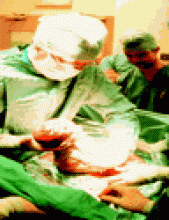- © 2004 Canadian Medical Association or its licensors
Abstract
Background: The outbreak of SARS in 2003 had a dramatic effect on the health care system in Toronto. The main objective of this study was to investigate the psychosocial effects associated with working in a hospital environment during this outbreak.
Methods: Questionnaires were distributed to all willing employees of Sunnybrook and Women's College Health Sciences Centre between Apr. 10 and 22, 2003. The survey included questions regarding concern about SARS, precautionary measures, personal well-being and sociodemographic characteristics; a subsample also received the 12-item version of the General Health Questionnaire (GHQ-12).
Results: Of the 4283 questionnaires distributed, 2001 (47%) were returned, representing 27% of the total hospital employee population of 7474. The proportions of respondents who were allied health care professionals, nurses and doctors and who worked in areas other than patient care were representative of the hospital staff population as a whole. Of the 2001 questionnaires, 510 contained the GHQ-12. Two-thirds of the respondents reported SARS-related concern for their own or their family's health. A total of 148 respondents (29%) scored above the threshold point on the GHQ-12, indicating probable emotional distress; the rate among nurses was 45%. Masks were reported to be the most bothersome infection control precaution. Logistic regression analysis identified 4 factors as being significantly associated with increased levels of concern for personal or family health: perception of a greater risk of death from SARS (adjusted odds ratio [OR] 5.0, 95% confidence interval [CI] 2.6–9.6), living with children (adjusted OR 1.8, 95% CI 1.5–2.3), personal or family lifestyle affected by SARS outbreak (adjusted OR 3.3, 95% CI 2.5–4.3) and being treated differently by people because of working in a hospital (adjusted OR 1.6, 95% CI 1.2–2.1). Four factors were identified as being significantly associated with the presence of emotional distress: being a nurse (adjusted OR 2.8, 95% CI 1.5–5.5), part-time employment status (adjusted OR 2.6, 95% CI 1.2–5.4), lifestyle affected by SARS outbreak (adjusted OR 2.2, 95% CI 1.4–3.5) and ability to do one's job affected by the precautionary measures (adjusted OR 2.9, 95% CI 1.9–4.6).
Interpretation: Our findings indicate that the SARS outbreak had significant psychosocial effects on hospital staff. These effects differed with respect to occupation and risk perception. The effect on families and lifestyle was also substantial. These findings highlight the need for interventions to address psychosocial distress and concern and to provide support for employees during such crises.








